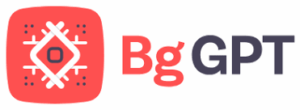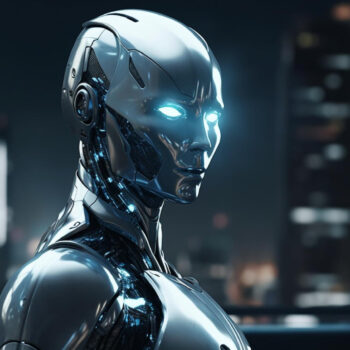
Academic Year 2025/2026: Education and AI
- On 15/09/2025
- academic integrity and AI, AI and academic cheating, AI and ethics in education, AI in Bulgaria, AI school programs, AI school year 2025/2026, AI university programs, artificial intelligence in education, Bulgarian AI model, critical thinking and AI, digitalization of education, education and AI, future of education, future of work and AI, global examples AI education, human plus AI, schools and AI, students and AI, teachers and artificial intelligence, universities and artificial intelligence
September always brings a fresh start – bustling schoolyards, the first bell, smiles, excitement, and anticipation. Yet the 2025/2026 academic year stands out for another reason: for the first time, discussions about artificial intelligence (AI) are no longer about the future – they are happening here and now. AI is entering classrooms, university programs, and even students’ homework – sometimes as a helpful assistant, other times as a source of concern.
What does this mean for Bulgaria? Can we harness AI as a tool to enhance education, or do we risk weakening critical thinking and trust in academic achievements? From university programs and school pilot projects, through students’ perspectives, to global examples and teachers’ real concerns – the 2025/2026 school year is a pivotal moment to decide AI’s role in Bulgarian education.
AI in Bulgarian Education – From Experiment to Strategy
This academic year is crucial for integrating AI into the national education system. The Ministry of Education and Science has announced plans to develop a Bulgarian AI model, trained exclusively on verified educational materials – aiming to ensure reliable information and support teachers in both administrative and pedagogical tasks.
At the same time, global platforms such as Perplexity and Google Gemini are entering schools, and teachers will undergo new training to work effectively with AI. The focus is not just on digitalization but on ethical and responsible use – preventing plagiarism and fostering critical thinking.
Universities
In recent years, several universities have introduced AI-focused programs:
- Technical University – Sofia: Bachelor’s in Intelligent Systems and Artificial Intelligence; Doctorate in AI Systems.
- Technical University – Varna: Bachelor’s in Artificial Intelligence; Master’s in AI Systems.
- Burgas Free University: Master’s in Artificial Intelligence.
- Sofia University (INSAIT): Leading research institute involving students in machine learning projects and language model development, such as BgGPT.
 Schools
Schools
In Burgas, digital science programs are already underway, and from 2025/2026, AI will be integrated into both elective and extracurricular classes.
Bulgaria is gradually moving from experimental initiatives toward a systematic strategy to prepare the next generation for an AI-driven world.
Students’ Perspectives: Enthusiasm and Concerns
Young people see AI as a natural part of their daily lives. According to JISC (June 2024 – May 2025), 86% of students worldwide use AI – for writing assignments, preparing for interviews, or even organizing their schedules.
The trend is similar in Bulgaria. AI is a valuable assistant for students with special educational needs, such as dyslexia or ADHD. In some group assignments, AI is already regarded as a “virtual team member.”
Yet alongside the benefits come concerns:
- Unequal access – premium versions give an advantage to wealthier families.
- Skill erosion – excessive use may weaken critical thinking and writing skills.
- Labor market uncertainty – especially for entry-level positions likely to be automated first.
Students and pupils are not asking for bans but for clear guidelines and training on how to use AI productively and ethically.
Teachers: Risks and Opportunities
AI poses serious challenges to academic integrity. According to the Financial Times (2024), British universities have already excluded entire cohorts due to AI-related misconduct.
Globally, Turnitin reports that between June 2023 and June 2024, over 22 million student submissions showed signs of AI assistance, with 3% containing more than 80% machine-generated content. This creates a real risk of “graduating” professionals lacking essential knowledge – particularly concerning in critical fields like medicine or defense.
The situation in Bulgaria is similar: without proper regulation, AI use could undermine trust in diplomas and graduates’ competencies.
At the same time, AI offers significant benefits. According to Intelligent.com (2023/2024), 30% of students in the U.S. already use ChatGPT for coursework, and at Vanderbilt University, over 90,000 individuals have completed AI training programs.
For teachers, AI can free up time from routine tasks, allowing them to focus on their core mission: inspiring and nurturing critical thinking. For society, it presents an opportunity to prepare talent for emerging professions, including prompt engineers, with salaries reaching up to $300,000 annually.
Global Lessons: What Bulgaria Can Learn
To understand the trajectory, we can look to China. From September 2025, the country is introducing mandatory AI classes at all levels – from primary school to university.
This is part of the “Strength Through Education by 2035” strategy, aimed at equipping students for the future labor market with problem-solving, collaboration, and critical thinking skills. Universities are already partnering with local companies such as DeepSeek, which develop competitive AI models.
Conclusion: Human + AI, Not Human vs. AI
The 2025/2026 academic year marks a new chapter for Bulgarian education. AI is no longer a luxury or a novelty – it is a reality. The question is not if, but how we will use it.
While the world debates AI-related misconduct and deepfakes, Bulgaria is focusing on creating its own AI model, launching new university programs, and integrating AI in schools. This is a chance not just to catch up but to lead by example in ethical and responsible AI use.
The true value of AI will not be measured solely in statistics. It will depend on whether we help the next generation become more independent, critical, and creative. The future of education is human + AI, not human versus AI.






